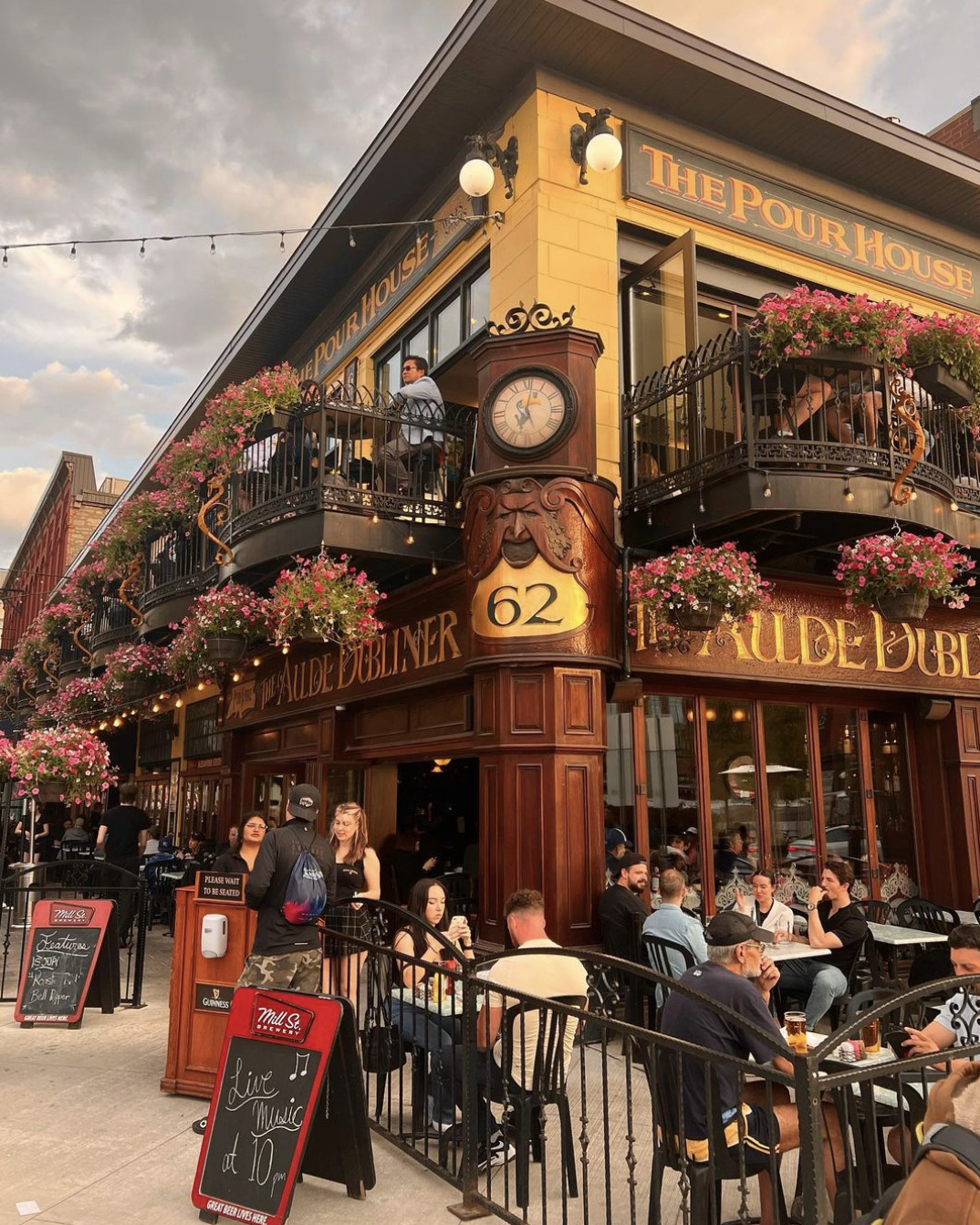Ottawa already has great nightlife, it just needs to be promoted, say supporters of the city’s proposed Nightlife Economy Action Plan.
The three-year plan, which will be presented to the finance and corporate services committee next Tuesday, includes the appointment of a new commissioner – dubbed the “night mayor” by some – as well as the creation of a virtual nightlife resource centre, support for new mid-size venues, and a city-wide nightlife safety and security plan for workers.
Other proposals include simplifying permitting, licensing and zoning processes to encourage night markets and food festivals, incorporating “security by design” principles, and broadening permitted land uses. Reduced transit fares on low demand evenings and lower parking fees in designated nightlife nodes between 6 p.m. and 6 a.m. were also recommended.
(Sponsored)

For the fifth year in a row, Ottawa will become the epicentre of Canadian culinary excellence in late January. Chefs from Ottawa, Vancouver, Edmonton, Calgary, Saskatoon, Winnipeg, Toronto, Montreal, Moncton

Desjardins Elevator Pitch Competition drives entrepreneurial energy at uOttawa
In uOttawa’s Desjardins Elevator Pitch Competition, a single team member stands before the judges, pitching for three minutes, fielding questions for five. There are no decks, notes, props or prototypes
Michelle Groulx, executive director of the Ottawa Coalition of Business Improvement Areas (OCOBIA), has been involved in the consultation and said she “fully endorses” the plan.
Ottawa’s night entertainment scene is alive and well, she said, but needs more support.
“Obviously, everyone hears that we’re a 9-5 government town. Now, looking at our downtown, it’s not just dead at night – it’s all day and all night now,” she said. “But if you have lived in Ottawa for long enough, you know that Ottawa has had quite a vibrant nightlife.”
If they know where to look, Groulx said, residents can find comedy clubs, events, live music and “restaurants hopping on a Tuesday night at 9 p.m.”
“What’s important to get out is that developing a strategy and action plan with something that never existed shouldn’t happen, it just isn’t authentic. Ottawa is doing this and it comes from our authenticity in actually having nightlife to begin with,” she said. “The story just needs to be told by someone in office who has the ability to get everyone’s ear.”
For employees and businesses that rely on after-hour activities, the new action plan will be helpful, Groulx said.
“When you support the 6 p.m. to 2 a.m. economy, that is when workers in hospitality make more money than during the day, so you’re supporting that workforce as well,” she said. “(OCOBIA) represents hundreds of businesses that operate during those hours and they employ thousands of employees and we’re looking to fully support that.”
A buzzing bar and restaurant scene will also attract young talent to the city, which Groulx said could relieve some of the labour strains businesses are facing. While she said she hopes that the desire for “fun” doesn’t “diminish with age,” Groulx said it is important to make Ottawa attractive for young people who are seeking entertainment and activity.
“The younger you are, the more attracted to fun and play you are. If we’re trying to attract (older) teenagers to come here for post-secondary (school), fun is something they’re looking for,” she said. “What’s the story Ottawa is telling? How are we supporting that?”
Crucial to a thriving night-time economy is live music, and Erin Benjamin, president and CEO of the Canadian Live Music Association, said she’s excited to be a “connector” between business and the cultural industry at the committee presentation next week.
Benjamin has been a part of the consultation process from the beginning. She said it “makes a lot of sense” to include her association in plans and consultations and that the industry has “momentum after three years of being crushed.”
“Ottawa has a growing live music scene with more venues and talking about even more developing, incredible venue managers, more festivals and events, and so many pieces in place,” she said. “To think of the live music industry would be a wonderful nod to our artists and community who have been doing their part to create a vibrant city with not much understanding of how they fit into the business aspect.
“Who are we as a city and why do our artists matter? It’s a very important thing, and I’m very excited,” she continued. “Whether it’s supporting those who are out performing, or those who have yet to pick up an instrument but will write the song for our future.”
Heart and Crown Irish Pubs CEO Shauna Bradley said she couldn’t be more excited for the arrival of a “night mayor.”
Bradley said she is already seeing people wanting to “get out and enjoy life” and that it will only get better now that the city is “finally prioritizing nightlife.”
“We can finally shed the reputation of the city that fun forgot,” she said. “Why not focus on the nightlife economy? It’s great that we’re looking at other big cities that are doing it well. The population here is growing at a rapid pace – we’re becoming a big city and we have to start acting like one.”

Bradley was also consulted for the plan and said that it “can’t come soon enough.” She believes that public safety and security will improve once nightlife receives more attention.
“When a place is busier and more bustling, the trouble stays away. And the focus on safety (in the plan) will encourage a safer environment since it will be a priority,” Bradley said.
Her biggest hope is that the nightlife commissioner is well-chosen – someone who can “speak both languages, the language of the city and one of the businesses” – and is able to capitalize on the nightlife that already exists in Ottawa.
“It’s just not very well promoted in the city and we need to give it the push. It’s already happening, so let’s nurture it. It’s finally happening, so let’s do this,” she said.





